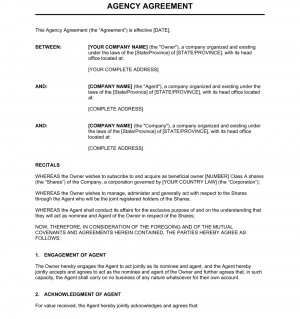Description
Corporate contracts are legally binding agreements between two or more parties that define the rights, responsibilities, and obligations related to business transactions or relationships within a corporate context. These contracts play a crucial role in establishing the terms of engagement, mitigating risks, and ensuring clarity and fairness in business dealings.
A comprehensive corporate contract typically includes several key elements:
1. Parties Involved: Identifies the entities or individuals entering into the contract and specifies their roles and responsibilities.
2. Terms and Conditions: Clearly outlines the terms of the agreement, including the scope of work, deliverables, timelines, payment terms, and any relevant milestones.
3. Consideration: Specifies the compensation, goods, or services exchanged between the parties as part of the contract.
4. Representations and Warranties: Includes assurances made by each party regarding their ability to fulfill their obligations under the contract and the accuracy of the information provided.
5. Confidentiality and Non-Disclosure: Establishes the confidentiality obligations of the parties to protect sensitive information shared during the course of the business relationship.
6. Intellectual Property Rights: Defines the ownership and usage rights of any intellectual property, including copyrights, trademarks, or patents, created or utilized during the contract period.
7. Dispute Resolution: Specifies the procedures for resolving disputes that may arise during the term of the contract, including mediation, arbitration, or litigation.
8. Termination and Remedies: Outlines the conditions under which either party may terminate the contract and the remedies available in case of breach or non-performance.
Corporate contracts cover a wide range of business transactions and relationships, including:
– Supplier Contracts: Agreements with vendors or suppliers for the purchase of goods or services.
– Client Contracts: Contracts with clients or customers for the provision of products or services.
– Employment Contracts: Agreements with employees outlining terms of employment, compensation, and benefits.
– Partnership Agreements: Contracts between business entities forming a partnership or joint venture.
– Licensing Agreements: Contracts granting or obtaining licenses for the use of intellectual property.
– Lease Agreements: Contracts for the rental or lease of property or equipment.
Drafting and negotiating corporate contracts require careful consideration of legal, financial, and operational aspects to protect the interests of all parties involved. It’s essential to ensure that contracts are clear, enforceable, and compliant with relevant laws and regulations governing the specific industry or jurisdiction. Additionally, regular review and updates to contracts are necessary to adapt to changing business conditions and legal requirements, ensuring the continued effectiveness of the agreements.









Reviews
There are no reviews yet.